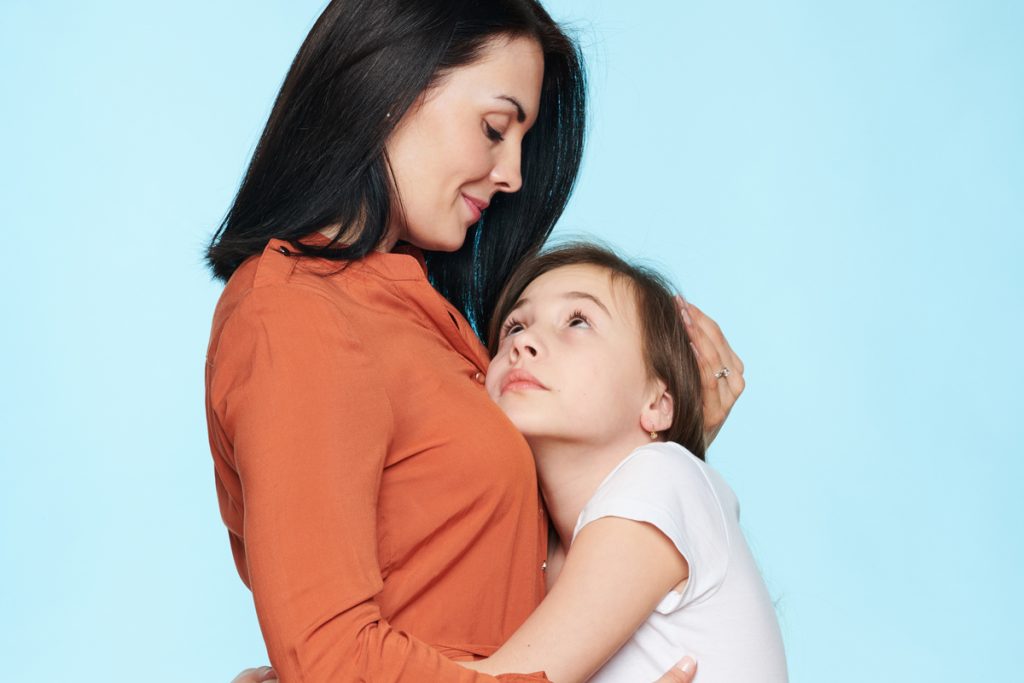Children are very sensitive to messages from their parents about their body image and appearance. Often you may not even be aware of the messages your child is hearing from you. Parents can have a very positive impact on the way a child feels about the way they look and their self-esteem. Helping your child develop a healthy body image is important as it can also strengthen their relationship with eating and exercise and reduce the risk of developing disordered eating and eating disorders.
Here are some tips on ways you can be a good body image role model for your child:
Reflect on your own relationship with your body. This may not be easy but being aware of your attitude towards your own body will help you be conscious of the messages you send to your kids. Try to avoid looking in the mirror and making negative comments about the way you look. If your child sees that you feel comfortable and happy with your body, this can help them feel comfortable in their own skin.
Avoid talking about diets.
Dieting is the biggest risk factor for an eating disorder. Try to avoid talking about diets, your “naughty” eating habits, or your weight and size. This can give kids the impression that weight and size are highly valued by you and they might feel pressure to look a certain way or be a certain size. Celebrate diversity and emphasise how loved and valued your child is no matter what their weight, shape or size.
Talk to your child about the way they feel about the way they look.
Encourage your child to talk with you about their feelings. Create space to talk about things on a daily basis including what is happening with their friends. If your child feels safe to talk to you, then they are likely to share feelings about their bodies with you.
Help your child stay body confident when using social media.
Talk to your child about the realities of digital manipulation and that what they see in the media and online is not always real. Encourage them to reflect on how their social media experiences make them feel and if it’s not positive then they need to change it. Despite best parenting efforts serious body image issues and eating disorders do develop. It’s important to recognise the warning signs of body dissatisfaction and low self-esteem as early as possible. There are certain cues you can pick up on in your child once you know what to look for.
Here are some warning signs to keep an eye on in your child:
- Withdrawal from social events and activities that they used to enjoy
- A focus on diets, calories, health and particular foods. They might talk about wanting to be healthier or fitter and become obsessive about checking the nutritional content of what they are eating.
- They might become irritable or anxious around dinner time. They may refuse to eat certain foods or whole food groups.
- Complaints about the way they look, e.g. “I’m ugly” or “I’m fat”, or negative comments about their abilities, e.g. “I’m hopeless”
- Frequent self-scrutiny – such as weighing themselves or excessively looking at their reflection.
- Change in clothing style such as wearing baggy or oversized clothing
If you notice any of these signs in your child it is important to seek help as early as possible. You know your child best, so trust your instincts. If you are finding it hard to be accepting of your own body, remember it’s never too late to seek help.

